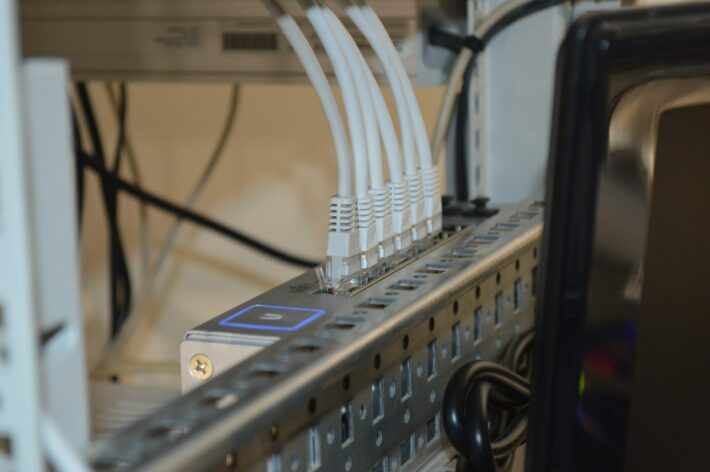What is a SOCKS5 Proxy and How It Impacts Your Business in 2025

What is a SOCKS5 Proxy? This is one of the most important questions businesses, and marketers are asking as they prepare for digital challenges in 2025. With rising concerns around data privacy, IP bans, and region-specific restrictions, SOCKS5 proxies have become a powerful tool. In this article, we explore what a SOCKS5 Proxy is, how it differs from other proxy types, and how it can positively impact your business operations this year.
You will also learn about practical use cases, key benefits, and ways companies like ProxyTee make proxy integration easier than ever. Whether you are running a scraping operation or managing SEO tools, understanding SOCKS5 technology can unlock smoother, more secure workflows.
SOCKS5 Origins: Understanding Internet Protocols
To understand SOCKS5 proxies, we need to start with internet protocols. The internet operates using three primary protocols:
- Internet Control Messaging Protocol (ICMP)
- Transmission Control Protocol (TCP)
- User Datagram Protocol (UDP)
ICMP is a control protocol, mainly used to deliver network status information—think pinging a server to test if it’s reachable. However, the protocols that matter most for proxies are TCP and UDP.
Both TCP and UDP are transport protocols that transfer data from one location to another. TCP guarantees delivery and proper sequencing of packets, along with optimizations and error checks. UDP, on the other hand, is connectionless. It might not deliver data in the correct order—or at all. Still, UDP is preferred for real-time communication such as voice calls and video streaming, where speed takes precedence over accuracy.
Most of our Datacenter Proxies support both TCP and UDP. Our residential proxies primarily support TCP, making them perfect for a wide range of typical business operations like data scraping, ad verification, or web automation.
What is a SOCKS5 Proxy and Why It Matters
SOCKS5 is the fifth version of the SOCKS protocol, offering a more advanced and flexible method for routing network packets between clients and servers through a proxy server. Unlike traditional HTTP proxies, a SOCKS5 proxy does not interpret data packets. Instead, it simply forwards them, making it highly versatile for any traffic type such as HTTP, HTTPS, SMTP, FTP, and P2P.
This proxy type supports both TCP and UDP, allowing for low-level handling of internet traffic. It also adds authentication methods to improve security. This makes SOCKS5 ideal for users seeking anonymity, speed, and flexibility across multiple use cases.
How a SOCKS5 Proxy Works in Simple Terms
When you connect to the internet through a SOCKS5 proxy, your request first goes to the proxy server. The proxy then routes this request to the target destination using its own IP address. This masks your real IP, helping you avoid regional restrictions, bans, and exposure to third-party tracking.
For developers and SEO professionals, this means improved access to tools and platforms that may restrict usage based on location or repetitive queries. A SOCKS5 proxy routes data without modifying it, which results in fewer connection errors and greater compatibility with complex tasks like web scraping and automation.
Key Benefits of SOCKS5 Proxy for Your Business
- Speed and Efficiency: SOCKS5 proxies are faster than traditional proxies because they support UDP and avoid packet rewriting.
- Wider Protocol Support: They are protocol-agnostic, supporting various traffic types including HTTP, HTTPS, and FTP, making them suitable for dynamic online environments.
- Improved Anonymity: By not including headers or rewriting data, SOCKS5 proxies keep your activity less detectable to firewalls or monitoring systems.
- Authentication Support: You can use username and password for extra security, which is especially valuable for enterprise environments.
- Bypassing Restrictions: Ideal for accessing geo-blocked content and tools without alerting network-level filters or surveillance systems.
Real Use Cases of SOCKS5 Proxy
Here are some of the most relevant ways SOCKS5 proxies are being used across industries today:
- Automated Web Scraping: Many businesses gather data from websites for pricing, product listings, and market trends. Using a SOCKS5 proxy like the ones offered through Unlimited residential proxy helps prevent blocks and ensures consistent data collection without leaks or interruptions.
- SEO Tools and Rank Tracking: Accurate keyword rank tracking requires sending multiple requests to search engines. SOCKS5 proxies allow businesses to perform these operations without triggering bot detection mechanisms.
- Ad Verification and Fraud Prevention: Companies use proxies to view how their ads appear in different regions and detect fake clicks or impressions. SOCKS5 supports this by enabling access from various IPs and locations, powered by Global IP Coverage.
- Streaming and Geo-Unblocking: Media companies and marketers working on international campaigns use SOCKS5 proxies to test content availability in target regions and simulate user experiences accurately.
- eCommerce Market Research: Retailers monitor competitor pricing, inventory, and reviews across multiple websites using automation. SOCKS5 proxies ensure smooth and anonymous data flow even when websites try to block repeated visits.
What is a SOCKS5 Proxy Doing Differently from HTTP Proxies
Unlike HTTP proxies that are restricted to HTTP traffic and often modify data packets, SOCKS5 proxies support both TCP and UDP traffic without rewriting headers. This results in better performance, fewer errors, and greater compatibility across tools and platforms.
Furthermore, SOCKS5 enables applications that rely on non-HTTP protocols, such as VoIP, game servers, or email clients. This expanded use makes it an excellent choice for diverse digital operations in 2025.
How ProxyTee Supports SOCKS5 Proxy
ProxyTee provides SOCKS5 support along with HTTP protocols, offering businesses a flexible foundation for web automation, analytics, and more. With unlimited bandwidth and a network of 20 million IPs, the service supports everything from scraping to social media automation.
Their simple API and simple and clean GUI make configuration easy, even for non-technical teams. By combining SOCKS5 flexibility with residential IP legitimacy, ProxyTee provides a solution suited for privacy-focused, high-demand business operations.
Why SOCKS5 Proxy Should Be in Your 2025 Toolkit
As digital ecosystems evolve, maintaining anonymity and access to data becomes more complex. SOCKS5 proxies offer a secure and fast way to manage traffic across diverse tools and environments. Businesses using them benefit from improved efficiency, fewer IP blocks, and access to regional markets.
ProxyTee remains a trusted choice for integrating SOCKS5 technology thanks to its affordable pricing, global reach, and commitment to ease of use. From market intelligence to social media monitoring, a SOCKS5 proxy helps your business stay ahead while respecting network constraints and protecting your identity.
When navigating proxy settings, you’ve likely come across “SOCKS proxies.” While they might be a default option in some browsers and applications, it’s essential to understand if they align with your specific needs. This article delves into what SOCKS5 is and whether it is a good choice, especially from a security standpoint. Let’s explore how it works and how ProxyTee can offer effective alternatives tailored for modern online operations.
